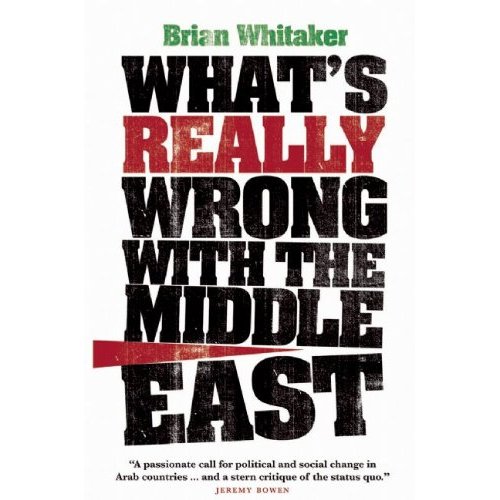
In What’s Really Wrong with the Middle East, author Brian Whittaker has taken an unconventional and ambitious look into authoritarianism what is not so much the Middle East but the Arab world. The book asks: why is political order in so many Arab countries dysfunctional; why does political and religious violence spring from the region so frequently; and why has it been slow to democratize compared to others? Unlike other works on the subject, from notable authors such as Bernard Lewis, Fareed Zakaria and Samuel Huntington, Whittaker dispenses with talk of civilizations, consideration of a dearth of “self-criticism” and theories of religious essentialism. He challenges the assumption that authoritarianism is so powerful and enduring in Arab countries as a result heavy-handed regimes or a brittle civil society alone. Instead, he points to important elements of contemporary culture in the region, some of which are more deeply rooted than others, that make Arab populations “to varying degrees, participants in a system of oppression and denial of rights.”
“Contrary to popular opinion,” the journalist writes “most human rights abuses in the Arab countries are perpetrated by society rather than regimes.” He points to the patriarchal structure of the Arab family as the cradle of a society in which power is wielded over the weak and where women and minorities of practically every stripe (except, of course, the elite) are persecuted by conformist social expectations. He then explores, through interviews with mostly young Arabs and along with various statistical data, the implications of social authoritarianism in the Arab world. He quotes Khaled Diab, an Egyptian social critic, who explains, “Egypt has a million Mubaraks.” In response to that statement an optimist might assert: Good thing there are 70 million Egyptians. The facts on the ground, though, as Whittaker documents, favor the pessimist.
Whittaker paints the “traditional” Arab family as a “microcosm” of the repressive, patriarchal, and authoritarian Arab state. The author sees the emancipation of women and marginalized groups as critical to the development of healthy political systems in the Arab world. The author explores the realm of youthful, oppositional and forward facing Arab movements comprised of the nation’s thinkers, and finds society as much to blame for the area’s stagnation. As a journalist for the Guardian Whittaker spent much time exploring the obscurities of the Arab world, leading him away from many mistakes made by other authors.
In Whittaker’s view, that many Arabs have internalized traditional prejudices against racial minorities, homosexuals and women, adds to the challenge of social progress in the region. He rightfully, in a way uncommon of much western writing, criticizes various taboos in Arab society especially those related to prejudice and discrimination on the basis of skin color. This is a problem that many Arabs refuse to acknowledge. By addressing this phenomenon head on, Whittaker avoids repeating past analysis by other authors, making his book unique in comparison to similar works. Many western observers fail to recognize such prejudices as significant, even though they are present in practically all Middle Eastern societies.
While Whittaker’s perspective is worthwhile and ought to be recognized, he at times reaches for than he can carry. He does not explain how Arab anti-globalization sentiments are peculiar when compared to others in the Third World or Europe. Still he comes up short in proving why this situation has reverberated negatively and caused misery throughout Arab countries, while apparently disregarding other places. One sees flashes of xenophobia in studying widespread European anti-globalism and a great deal more xenophobia in Japan. Yet these places are not holdouts of authoritarianism.
Whittaker also ignores the role of foreign powers in backing up Arab regimes. Further, it would be insightful for Whittaker to have explored the Hobbesian view of “change” that one observes in many of the Arab societies that have been subjected to war over the past several decades. He writes that the Arab society has been used by the native regimes to block the seeds of “progress,” specifically the tactics use of Islamists to counter leftists in the 1980s. Here Whittaker exposes his bias for the left, for he assumes that Arab leftists were by and large more open and less authoritarian than Islamists – which was not and is not always the case. Still, Whittaker is able to show that even leftists have at times collaborated with regimes, in a cycle of collaboration, cooptation and neutralization that has rendered Arab oppositions so frequently weak and feeble.
Though his general thesis does apply and relate to the people in Arab societies, the title of his book is misleading. It deals not at all with Iran, Turkey or any non-Arab society in the Middle East. It deals squarely with problems facing the Arab states. Despite this, What’s Really Wrong with the Middle East offers a colorful, distinctive and well-informed take on subjects not often broached by western writers when considering the future of the region.
_________________________
What’s Really Wrong with the Middle East? by Brian Whittaker. Saqi: London, 2009. 384 pgs.


